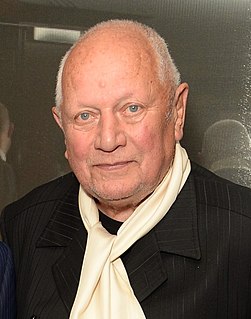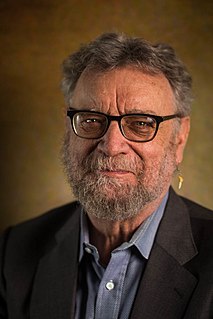A Quote by Howard Jacobson
Shakespeare's always been sitting on my back, since I began reading. And, certainly, as a writer, he's who I hear all the time. And he's almost indistinguishable now from the English language. I have no sense of what Shakespeare is like. I have no sense of the personality that is Shakespeare. I think, alone among writers, I don't know who he is.
Related Quotes
All the unimaginative assholes in the world who imagine that Shakespeare couldn't have written Shakespeare because it was impossible from what we know about Shakespeare of Stratford that such a man would have had the experience to imagine such things - well, this denies the very thing that separates Shakespeare from almost every other writer in the world: an imagination that is untouchable and nonstop.
A lot of people have a fear of Shakespeare. Even actors do. People are like, "Oh, I won't go and see Shakespeare because the language is so hard," but it is. When you read it on the page, you go, "What?! What does that mean?!" If you go to a Shakespeare play and you've never been, you sit there and go, "I'm an idiot! I don't get it!"
Shakespeare is absolutely big in Africa. I guess he's big everywhere. Growing up, Shakespeare was the thing. You'd learn monologues and you'd recite them. And just like hip-hop, it made you feel like you knew how to speak English really well. You had a mastery of the English language to some extent.
I believe strongly in what John Keats called negative capability: the trait or practice that allows a poet to remain in uncertainties, mysteries, doubts, without any irritable reaching after fact & reason. For Keats, William Shakespeare exemplified negative capability, and I do think it's extraordinary that for all the thousands of pages Shakespeare left behind, we really don't know much about Shakespeare's own personality or opinions.
Gene Wolfe is the greatest writer in the English language alive today. Let me repeat that: Gene Wolfe is the greatest writer in the English language alive today! I mean it. Shakespeare was a better stylist, Melville was more important to American letters, and Charles Dickens had a defter hand at creating characters. But among living writers, there is nobody who can even approach Gene Wolfe for brilliance of prose, clarity of thought, and depth in meaning







































